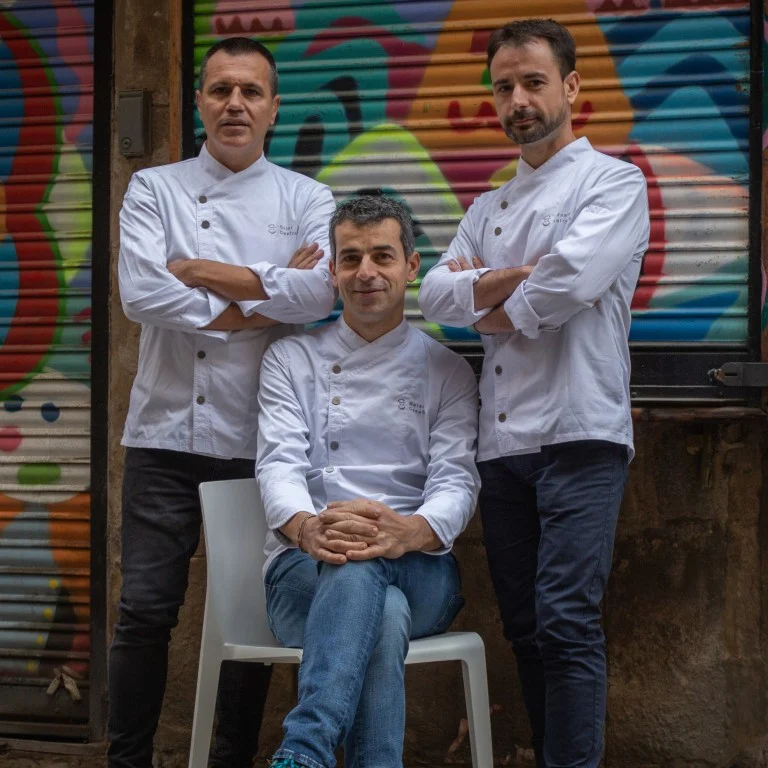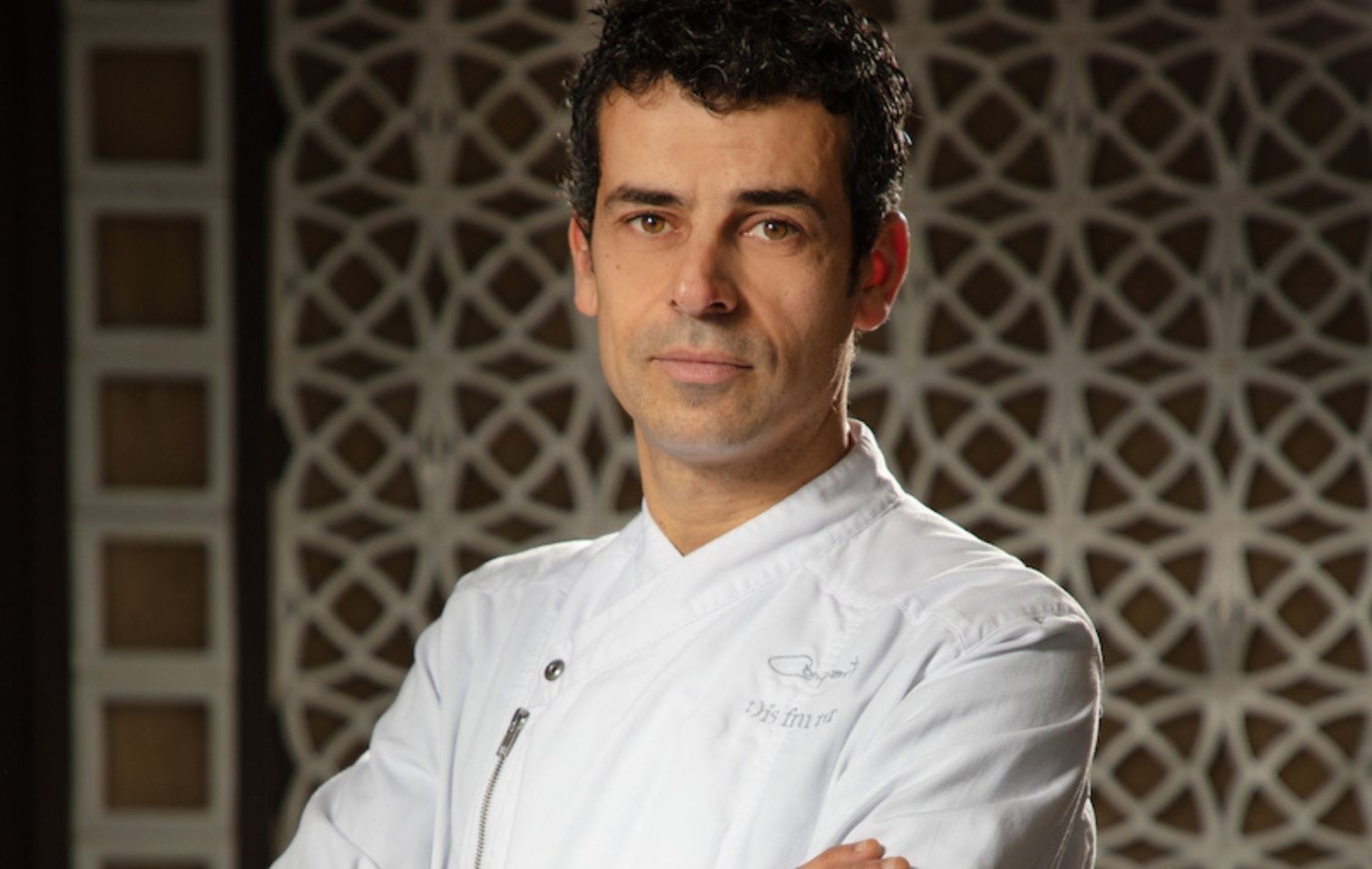“Many chefs are always on the defensive when it comes to critics, due to insecurity and a certain fear that it could compromise their business. Instead, opinions help you mature, whether positive or negative.”
Photo of the chef: Joan Valera
One year after Disfrutar was named the best restaurant in the world by the prestigious The World's 50 Best Restaurants ranking, Mateu Casañas—one of the three founding chefs—reflects on the value of success and the role of food critics. Interviewed on the podcast Quédate a comer, as reported here by La Vanguardia, Casañas speaks candidly about the emotions he felt after the award and the precarious balance between ambition and pressure. “It's impossible not to think about the years spent at El Bulli,” he says. “We come from there, it's part of our DNA.” The stage in Las Vegas, where he thanked his colleagues Oriol Castro and Eduard Xatruch for the first place, was also a moment of reflection: twenty-five, twenty-seven, thirty years of career behind him and the awareness that behind “from nothing to the top” there is much more.
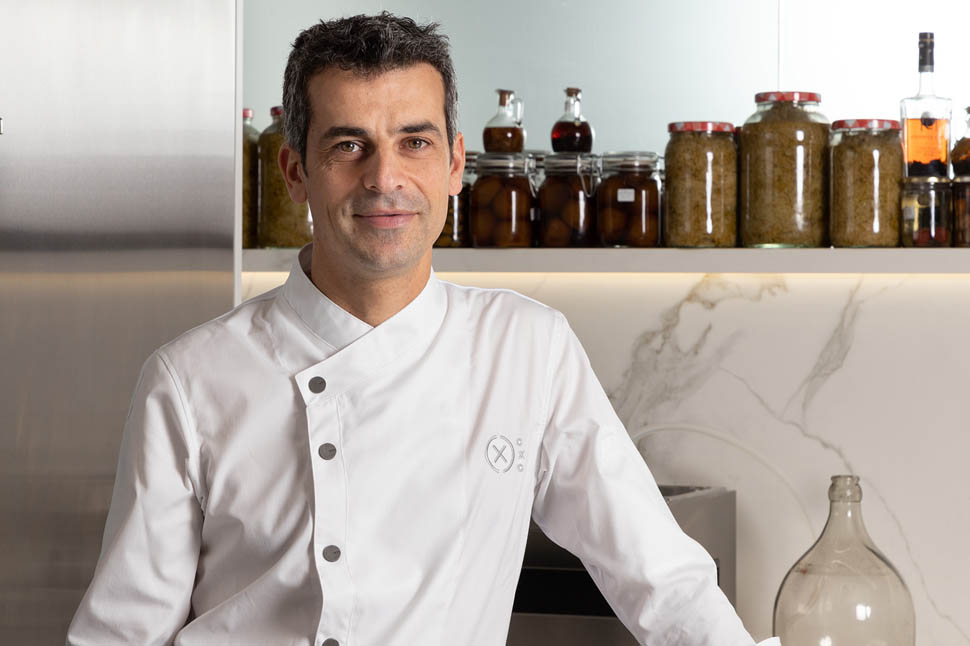
The invisible price of success
Casañas does not deny that his rise has come at a cost. “I never thought it wasn't worth it, but you wonder why you couldn't have lived it all with a little less pressure.” This reflection touches on personal issues, linked to family sacrifices and the perseverance needed to remain at the top of international cuisine. “Every award involves sacrifices, and behind every achievement there is someone who has lost something along the way. It's important to remember that.” Yet today, with the benefit of hindsight, the chef looks beyond his own success. “It was worth it, because this isn't just our journey. It's the journey of an entire sector that is becoming culture, territory, community.”
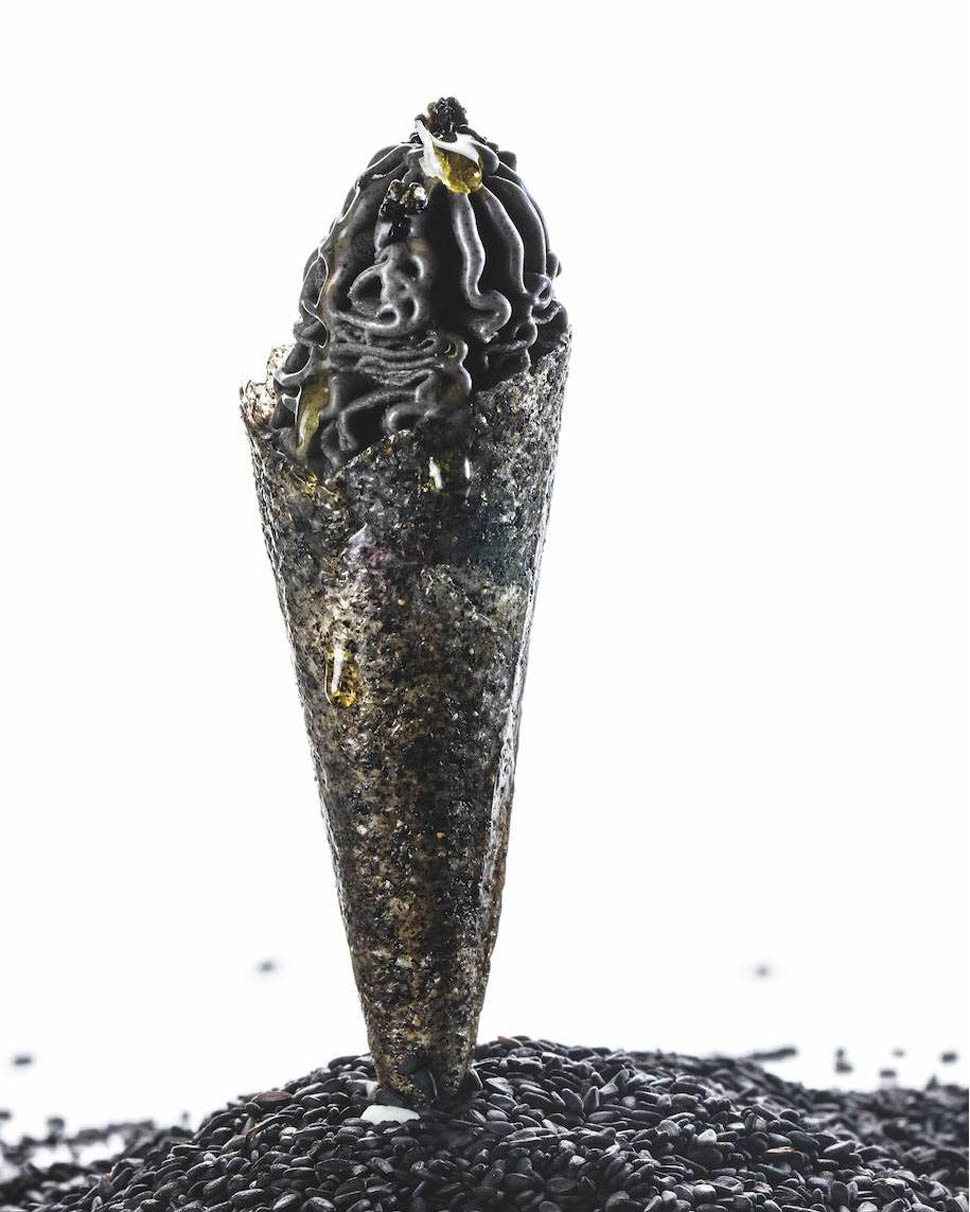
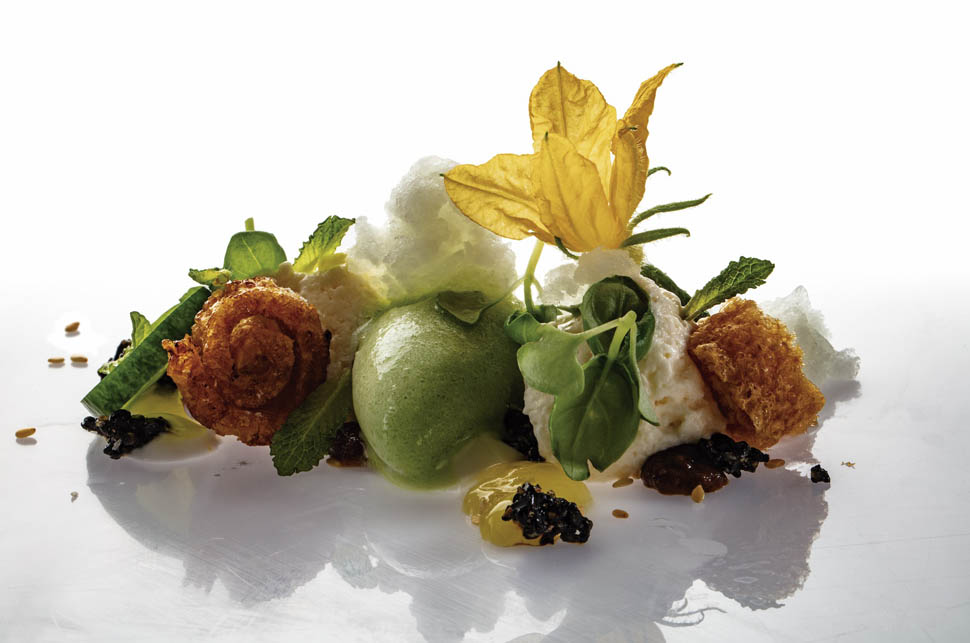
Gastronomy as culture and social commitment
For Casañas, cooking is not just technique or spectacle. It is a form of cultural expression, collective. “Gastronomy also concerns fishermen struggling to find sustainable solutions, farmers demonstrating to survive, those who preserve tradition and those who want to innovate it.” The success of Disfrutar is therefore seen as a step on a broader path, in which cooking is linked to the territory and society. For this reason, he says, it is important to “educate,” to explain the work behind a haute cuisine dish: participating in conferences, writing books, and engaging with the public.
Three partners, one shared soul (but not always in agreement)
Another key aspect of the Disfrutar project is the synergy between the three partners. However, this synergy has never been easy. “We are all very intense, we have to convince each other of every decision,” explains Casañas. This slows down the process but, in his opinion, ensures a solid foundation. When asked about his personal flaws, he responds with disarming honesty: "Mine is intransigence. Oriol has a chaotic disorder that gives him genius. Eduard is perhaps as uncompromising as I am, which is why we clash the most." Yet it is precisely from this confrontation that the most significant choices arise.

Criticism: uncomfortable but necessary
One of the most powerful passages in the interview concerns the relationship with food critics. Casañas has no doubts: “Criticism is fundamental. You can't only want to participate when they speak well of you. You always have to play the game, even when the words hurt.” He adds: “Chefs often feel defensive, out of insecurity or fear that it will damage the restaurant. But it is precisely criticism that makes you grow.” It's not just about awards or positive reviews. According to the chef, the value of criticism lies in its ability to generate reflection and maturity, even in the least rewarding moments.
A project that looks beyond the kitchen
Disfrutar today is not just a restaurant. It is a symbol of a cuisine that evolves, that dialogues with the world, that accepts comparison. But it is also an example of consistency, dedication, and courage. Casañas, Castro, and Xatruch have built something that goes beyond the plate: a creative laboratory, a school of thought, a home shared by those who believe that gastronomy is a tool for cultural change. In an age of quick fame and fragile certainties, Disfrutar remains a beacon of authenticity. It is also a voice that is not afraid to admit its fragility, accepting the shadows along with the light.
